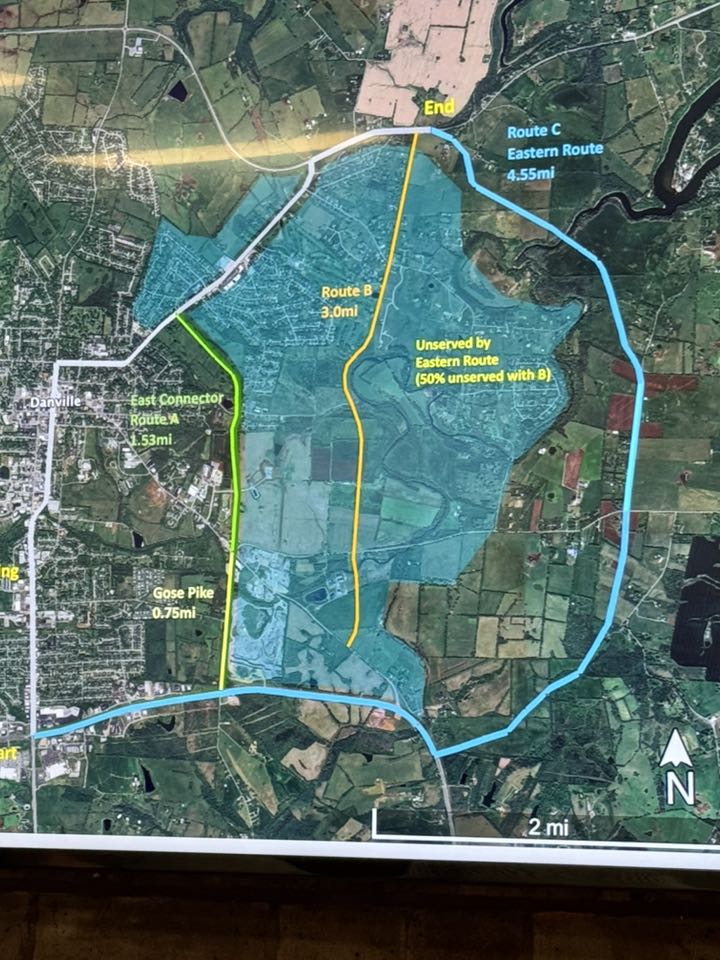A good week for open meetings
Published 3:39 pm Saturday, September 30, 2017
This was a good week for Kentucky’s Open Meetings Act. The state’s ultimate authority, the Supreme Court, issued a ruling in a case involving the City of Danville and this newspaper, affirming what the Open Meetings Act says — that government transparency is paramount.
For a democratically elected government to function properly, there must be transparency. A bedrock principle of American democracy is that our government serves us — we are the bosses of the public servants, not the other way around.
The Supreme Court ruled that Danville’s elected officials violated the Open Meetings Act by taking action behind closed doors, where their bosses couldn’t see what they were doing. The ruling upholds the best of American democratic values and proves once again that Kentucky has pretty good transparency laws — even if elected officials have a pretty bad record of violating them.
Trending
There will always be opposition to transparency from the people of whom transparency is required. Government agencies will almost always take every opportunity they are given to move their actions away from the light of day. Danville’s pursuit of this case all the way to the Supreme Court proves it.
It can be appropriate in rare cases to speak in secret, as the Open Meetings Act already allows for with narrowly tailored exceptions. But as Danville City Attorney Stephen Dexter proved with his comments on a desire to relax open meetings law following the Supreme Court ruling, governments will always try to push the boundaries ever wider on what can be hidden in the dark.
Fortunately, the Open Meetings Act is holding strong so far, and the tools it gives the public have proven very useful — both in this Supreme Court case and in a second open meetings case that made headlines in Boyle County this week.
The Supreme Court ruling on Thursday demonstrated the Open Meetings Act’s brute power — its direct legal authority over public agencies. The City of Danville took action behind closed doors, which has never in any way been legal under the act — it’s a blatant violation of the law.
At every stage of the fight between Danville and The Advocate-Messenger, that bright-line rule was affirmed with unequivocal language. The attorney general, Boyle Circuit Court, Court of Appeals and Supreme Court all told the city it was dead wrong. It doesn’t matter that the city didn’t believe them, and it doesn’t matter that the city still seems unapologetic; the law is the law is the law.
There is also a different, less direct power of the Open Meetings Act, which may not get as much attention but can be every bit as important as the act’s brute force power: the ability to force governments to explain themselves.
Trending
This quieter power was also on display in Boyle County this past week, as the Boyle County Fiscal Court dealt with an open meetings complaint from The Advocate-Messenger.
When the fiscal court began a meeting to discuss 911 service on Aug. 29, it seems almost no one in the room expected any action to be taken. The meeting had been talked about for weeks as a way to get information to magistrates and the public, without any suggestion that the court would take action that day. But Judge-Executive Harold McKinney produced at the end of the meeting a motion he told everyone he had written down that morning. Even his own magistrates apparently had no idea it would happen— though that didn’t prevent four of them from voting for McKinney’s motion.
If the voting members of a public agency couldn’t anticipate that action would be taken at a meeting where no action was on the agenda, how could the public have anticipated it any better? And yet that’s the exact argument County Attorney Lynne Dean relied upon in authoring the county’s rejection of The Advocate-Messenger’s open meetings complaint.
This is a good point to explain something: For all of its power, the Open Meetings Act has an unfortunate number of loopholes. These loopholes have been created both by language in the act and later on by poor readings of the act by attorneys general and courts. The loophole Boyle tried to exploit in this case comes from attorney general rulings that essentially reverse the explicit language of the act. The act requires all special meetings to adhere strictly to their agendas, as a way to ensure the public is always aware in advance of what their leaders will be doing. But several attorney general rulings have created out of whole cloth a new exception that the public should be able to “impute” that other things might go on at special meetings besides what’s explicitly on the agenda.
Here’s the good news: So far, none of the loopholes that let public officials dodge their duty to be open with the public also let them dodge the Open Meetings Act requirement that they respond to complaints and explain whether or not they believe they violated the law.
Even though Boyle may have found a technical way around open meetings law in this case, the county was still required to explain its reasoning publicly. Such explanations are how the public learns valuable information about its elected officials — and they can also lead to resolutions and corrections even when a formal open meetings appeal might fail.
So, what did we learn about Boyle County government from its response? It seems more concerned about the appearance of admitting the Aug. 29 action wasn’t totally above-board than it is with following the spirit of open meetings. It chose to flaunt a loophole rather than admit a mistake.
But we also saw a resolution to the violation. Despite denying it did anything wrong, the court still did as The Advocate-Messenger requested and re-voted on the Aug. 29 motion during a properly held session where action was appropriate. The vote more than flipped from 5-2 in favor to 6-1 against, suggesting the original vote was taken in haste and magistrates have since reconsidered over the ensuing month.
That’s the indirect power of the Open Meetings Act at work. Even when there are ways for a government to dodge the act’s requirements, there’s no way to avoid the public scrutiny of explaining why the government tried to dodge in the first place. And that public scrutiny will often lead to officials correcting their behavior, even if the law wouldn’t have required them to do so.
This week reinforced not only the power of the Open Meetings Act, but the need to use it to ensure government transparency. The Advocate-Messenger is committed to continuing the fight and fulfilling its role as a watchdog of all our local public agencies.






